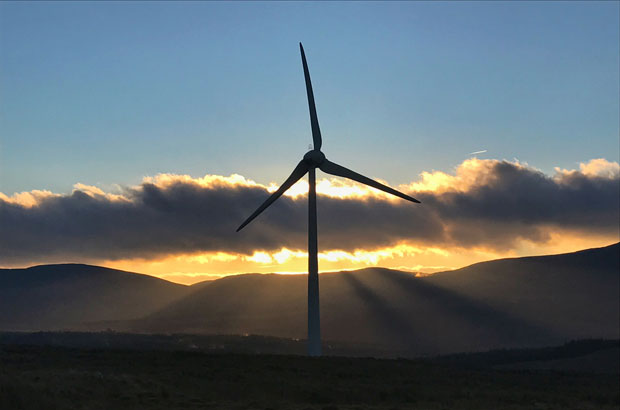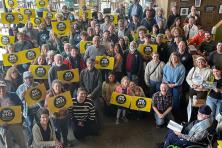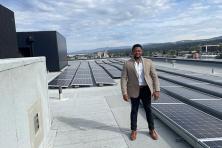This is the first in a series of articles on the election and what it means for climate action, especially in the Northwest.
There is no question that this year and this election have both been wild roller coaster rides—and they’re not over. Yet as we wait for further clarity on election outcomes both in our region and across the country, there are some things that are critical to look at when it comes to climate action.
While it’s clear that climate change is still not the priority issue that it needs to be with more voters, there is little doubt that climate and clean energy played their biggest role ever in a national election in the United States.
For the first time, several major presidential candidates, including Washington Governor Jay Inslee, made climate change the central issue in their campaigns during the primary season. After winning the Democratic nomination, Joe Biden created a unity team to pull together a comprehensive climate plan, by far the most ambitious of any presidential nominee in the nation’s history. Democratic primary voters placed climate change higher than ever on their list of priorities. Younger Republicans are pushing hard to make their party embrace climate change action.
Also for the first time, there was a long discussion about climate in the presidential debates. The issue came up in both debates this fall—that has not happened before. And finally, the candidates were asked simply about their plans to address the crisis, the debate moderator skipping the question of whether or not they believed in global warming. This might feel like a small win, but it is a shift, with the issue focused on what to do about the problem instead of debating whether it’s a problem in the first place. Research shows that the more we talk about climate change, the more likely it is that people will take action as they are hearing from political leaders that it’s an urgent problem. In fact, in a poll we conducted with partners in Washington State in November 2018, we found that folks that talk about climate are far more likely to support solutions.
The timing for this mobilization and elevation could not be more critical, symbolized perhaps most vividly by the formal withdrawal of the United States from the historic Paris Climate Agreement on November 4th. It is still possible for the US to rejoin this agreement, and President-elect Biden has pledged to do so without delay. But it means the work in the states will be even more vital in 2021, given that achieving meaningful federal action will likely continue to be tough.
When I consider the election results, the take-home message is that the Pacific Northwest is positioned to make nationally significant climate progress in three key areas that are the largest sources of emissions in the region: transportation, electricity, and buildings. Collectively these three sectors are responsible for more than 80% of total Northwest carbon emissions. We believe that we are on the offense in pursuing a vision of swiftly and equitably transitioning the Northwest to 100% clean energy.
There is a lot more to look at with our state legislative races in Washington and Oregon. There were several races in both states in which climate change was a major factor in the campaigns. With results still pending, we’ll take a deeper dive look at that part of the picture in our upcoming webinars and later in our series.
What’s Next
Along with the additional pieces in our series, The Election and What it Means for Climate Action, we are also hosting a number of webinars, including:
- November 12th at 10 AM: Climate Leaders Live: What’s next for Washington in 2021?
- November 17th at noon: Climate Leaders Live: What do the election results mean for climate action in Oregon?
- December 3rd at 4 PM: Climate Leaders Live: Inflection Point, featuring Dr. Ayana Elizabeth Johnson and Majora Carter for a post-election conversation about this critical juncture for climate, clean energy and a just economic recovery moderated by Victoria Paykar.
No matter the election outcomes, we know we need to tap our resolve, instill perseverance, and continue forward. We’re at an inflection point with climate change—let’s continue the hard work together. We’ll get further faster.





